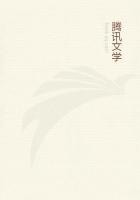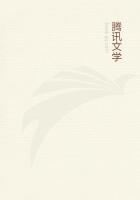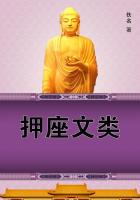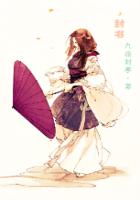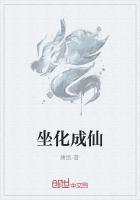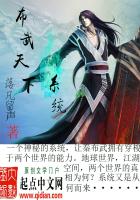NEARLY forty years had passed since the ex-private secretary landed at New York with the ex-Ministers Adams and Motley, when they saw American society as a long caravan stretching out towards the plains. As he came up the bay again, November 5, 1904, an older man than either his father or Motley in 1868, he found the approach more striking than ever -- wonderful -- unlike anything man had ever seen -- and like nothing he had ever much cared to see. The outline of the city became frantic in its effort to explain something that defied meaning. Power seemed to have outgrown its servitude and to have asserted its freedom. The cylinder had exploded, and thrown great masses of stone and steam against the sky. The city had the air and movement of hysteria, and the citizens were crying, in every accent of anger and alarm, that the new forces must at any cost be brought under control. Prosperity never before imagined, power never yet wielded by man, speed never reached by anything but a meteor, had made the world irritable, nervous, querulous, unreasonable and afraid. All New York was demanding new men, and all the new forces, condensed into corporations, were demanding a new type of man -- a man with ten times the endurance, energy, will and mind of the old type -- for whom they were ready to pay millions at sight.
As one jolted over the pavements or read the last week's newspapers, the new man seemed close at hand, for the old one had plainly reached the end of his strength, and his failure had become catastrophic. Every one saw it, and every municipal election shrieked chaos. A traveller in the highways of history looked out of the club window on the turmoil of Fifth Avenue, and felt himself in Rome, under Diocletian, witnessing the anarchy, conscious of the compulsion, eager for the solution, but unable to conceive whence the next impulse was to come or how it was to act. The two-thousand-years failure of Christianity roared upward from Broadway, and no Constantine the Great was in sight.
Having nothing else to do, the traveller went on to Washington to wait the end. There Roosevelt was training Constantines and battling Trusts.
With the Battle of Trusts, a student of mechanics felt entire sympathy, not merely as a matter of politics or society, but also as a measure of motion. The Trusts and Corporations stood for the larger part of the new power that had been created since 1840, and were obnoxious because of their vigorous and unscrupulous energy. They were revolutionary, troubling all the old conventions and values, as the screws of ocean steamers must trouble a school of herring. They tore society to pieces and trampled it under foot. As one of their earliest victims, a citizen of Quincy, born in 1838, had learned submission and silence, for he knew that, under the laws of mechanics, any change, within the range of the forces, must make his situation only worse; but he was beyond measure curious to see whether the conflict of forces would produce the new man, since no other energies seemed left on earth to breed. The new man could be only a child born of contact between the new and the old energies.
Both had been familiar since childhood, as the story has shown, and neither had warped the umpire's judgment by its favors. If ever judge had reason to be impartial, it was he. The sole object of his interest and sympathy was the new man, and the longer one watched, the less could be seen of him. Of the forces behind the Trusts, one could see something; they owned a complete organization, with schools, training, wealth and purpose; but of the forces behind Roosevelt one knew little; their cohesion was slight; their training irregular; their objects vague. The public had no idea what practical system it could aim at, or what sort of men could manage it. The single problem before it was not so much to control the Trusts as to create the society that could manage the Trusts. The new American must be either the child of the new forces or a chance sport of nature.
The attraction of mechanical power had already wrenched the American mind into a crab-like process which Roosevelt was making heroic efforts to restore to even action, and he had every right to active support and sympathy from all the world, especially from the Trusts themselves so far as they were human; but the doubt persisted whether the force that educated was really man or nature -- mind or motion. The mechanical theory, mostly accepted by science, seemed to require that the law of mass should rule. In that case, progress would continue as before.
In that, or any other case, a nineteenth-century education was as useless or misleading as an eighteenth-century education had been to the child of 1838; but Adams had a better reason for holding his tongue. For his dynamic theory of history he cared no more than for the kinetic theory of gas; but, if it were an approach to measurement of motion, it would verify or disprove itself within thirty years. At the calculated acceleration, the head of the meteor-stream must very soon pass perihelion. Therefore, dispute was idle, discussion was futile, and silence, next to good-temper, was the mark of sense. If the acceleration, measured by the development and economy of forces, were to continue at its rate since 1800, the mathematician of 1950 should be able to plot the past and future orbit of the human race as accurately as that of the November meteoroids.
Naturally such an attitude annoyed the players in the game, as the attitude of the umpire is apt to infuriate the spectators. Above all, it was profoundly unmoral, and tended to discourage effort. On the other hand, it tended to encourage foresight and to economize waste of mind. If it was not itself education, it pointed out the economies necessary for the education of the new American. There, the duty stopped.

